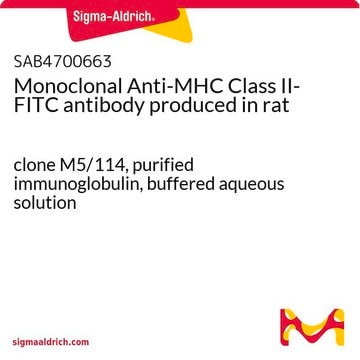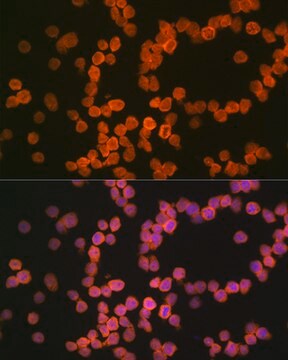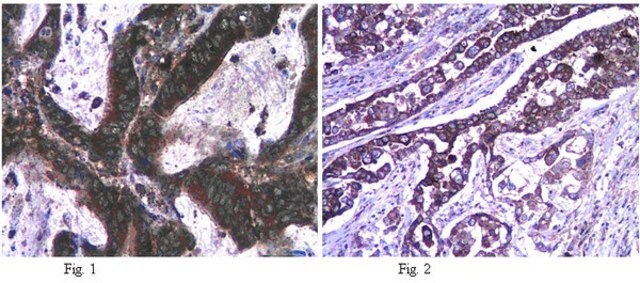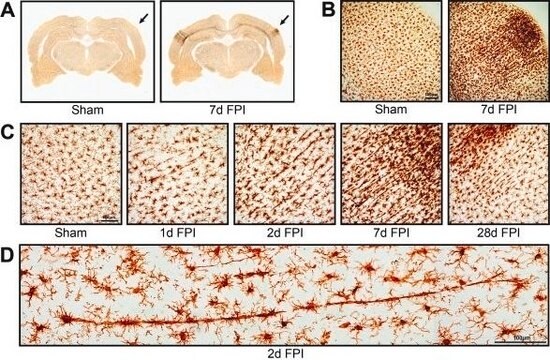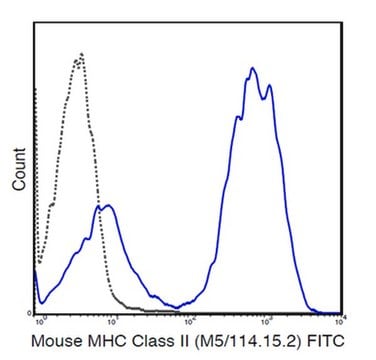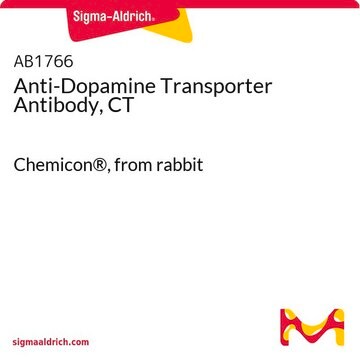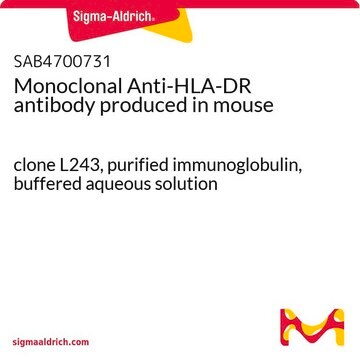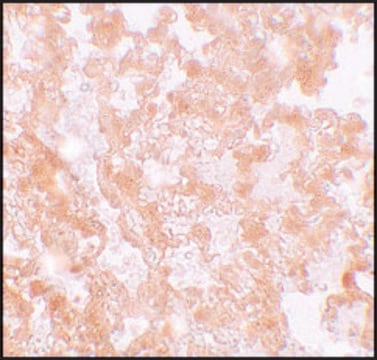MABF33
Anti-MHC class II (I-A/I-E) Antibody, clone M5/114
clone M5/114, from rat
Synonym(s):
CD74 molecule, major histocompatibility complex, class II invariant chain, Ia-associated invariant chain, CD74 antigen (invariant polypeptide of major histocompatibility complex, class II antigen-associated), gamma chain of class II antigens, Ia antigen-
About This Item
Recommended Products
biological source
rat
Quality Level
antibody form
purified antibody
antibody product type
primary antibodies
clone
M5/114, monoclonal
species reactivity
mouse
technique(s)
flow cytometry: suitable
immunohistochemistry: suitable
western blot: suitable
isotype
IgG2bκ
NCBI accession no.
UniProt accession no.
shipped in
wet ice
target post-translational modification
unmodified
Gene Information
mouse ... Cd74(16149)
General description
Application
Immunohistochemistry Analysis: A previous lot was used by an independent laboratory in IH on thymus tissue. (de Bont, E., et al. (1999). Int. Immunol. 11(8):1295-1306.)
Quality
Western Blot Analysis: 1 µg/mL of this antibody detected MHC class II (I-A/I-E) in 10 µg of mouse spleen tissue lysate.
Target description
There are 2 isoforms produced by alternative splicing: 32 kDa Isoform Long and 24 kDa Isoform Short.
Physical form
Other Notes
Not finding the right product?
Try our Product Selector Tool.
Storage Class Code
12 - Non Combustible Liquids
WGK
WGK 1
Flash Point(F)
Not applicable
Flash Point(C)
Not applicable
Certificates of Analysis (COA)
Search for Certificates of Analysis (COA) by entering the products Lot/Batch Number. Lot and Batch Numbers can be found on a product’s label following the words ‘Lot’ or ‘Batch’.
Already Own This Product?
Find documentation for the products that you have recently purchased in the Document Library.
Our team of scientists has experience in all areas of research including Life Science, Material Science, Chemical Synthesis, Chromatography, Analytical and many others.
Contact Technical Service